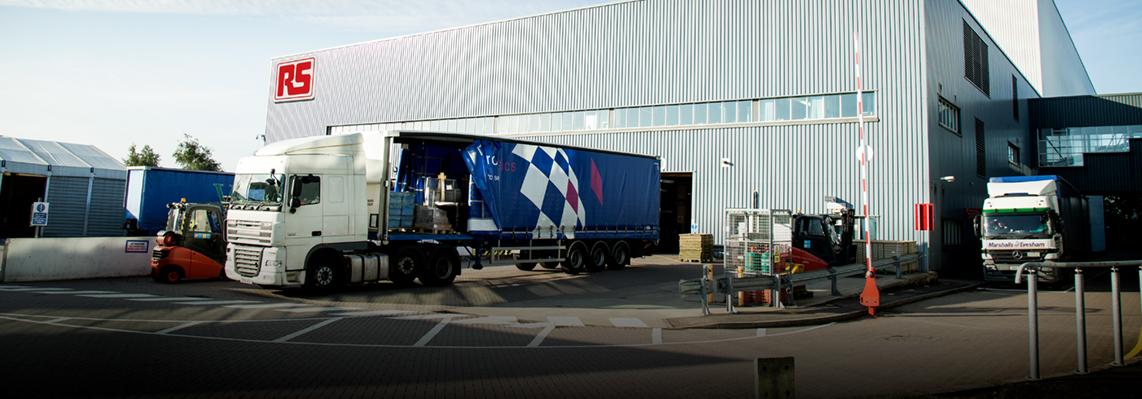Emma Botfield, Regional Managing Director (UK and Ireland) at RS Components (RS), highlights why manufacturers should take a strategic approach to ensure resilience underpins their essential supply chain for operations for maintenance, repair, operations (MRO) and protection products.
The past eighteen months have shown us the importance of resilience in the vast and interconnected supply chains that modern society has come to rely upon so heavily.
A focus on supply chain resilience has been aptly demonstrated by the UK Government’s approach to the procurement of vital vaccine supplies we need to escape the pandemic’s clutches. The Times reported that an independent review into the vaccine programme called for a permanent ecosystem to manufacture and supply vaccines to ensure economic and public health resilience.
While the pandemic has focused many minds on certainty of supply, it is the case that supply chain disruption caused by unpredictable events is more common than we perhaps appreciate. They remind us regularly of the fragility of the global supply chain model. It reinforces the need to ensure that manufacturers take appropriate steps to mitigate impact and build resilience across their supply chains.
Adopting a resilience-based strategy to safeguard the integrity and strength of a supply chain, includes addressing several key elements.
Assessing and forecasting risks
Firstly, it is essential to conduct a comprehensive risk assessment of all aspects of the manufacturing operation and identify the weak points. Creating contingency plans to mitigate risks must be agreed, actioned and communicated businesses can respond quickly to prevent interruption to its operations. But if the unexpected happens, collaborating with suppliers with inhouse specialists can quickly restore control to operations.
For example, at the beginning of the pandemic when the disruption to the global supply chain was at its worst, RS’s technical experts worked with many of its customers and its global suppliers to source and supply suitable alternative products that could be found in stock.
Diversification
It is also critical that companies should identify and understand how their suppliers are susceptible to high-risk events. It is also important to understand what level of diversification and multi-sourcing is within your supply chains. Whilst inventory buffers can help with business continuity in the short to medium term, ensuring that your suppliers have flexible and diversified supply chains can mean that they react quickly in the face of major long-term disruption. In such cases, strong partnerships with strategic suppliers can provide the support and peace of mind.
Partnering with global MRO and protection suppliers with a robust local infrastructure such as RS, can ensure that you have access to hundreds of thousands of product SKUs, from thousands of suppliers that can be accessed from an interconnected web of distribution centres and local branches. Where we found our strength over the past year, is reacting quickly to urgent demands. One such example was an NHS customer who urgently required a calibrated infrared thermometer to monitor patents for COVID-19. Within 24 hours, we sourced the product, sent it to our UKAS accredited calibration lab, couriered it to our Birmingham branch and then the manager personally delivered it to the customer.
Digitalisation
The COVID-19 pandemic has highlighted the criticality of having a robust digital infrastructure. Social distancing and working from home means that manufacturers with digitised supply chains, procurement processes and maintenance schedules have a built-in resilience that brings stability to their operations.
There are many ways digitalisation can be introduced to businesses by partnering with a strategic supplier. From eProcurement, digitised inventory management, through to condition monitoring and using AI to help predict failure, digitalisation has never been a more critical element in any organisation. Digitalisation can give more visibility and creates the agility to make better and quicker decisions.
Tapping into a global network
At RS, we work with our customers and suppliers to ensure supply chain resilience for their maintenance, repair, operations and protection requirements. Through our inventory, procurement and maintenance solutions, we use our expertise to help our customers to manage their inventory, digitalise purchasing processes and our dedicated engineers and analysts deliver asset reliability and condition monitoring services.
During these times, the importance of supply chain strength has come to the fore. As a result, we will, hopefully, see increased numbers across industry reappraise vulnerabilities in their own supply chains and address the primary factors that affect future resilience.





